Interview with Fred Scobey and Tobias Batkin, the founders of Work + Play London
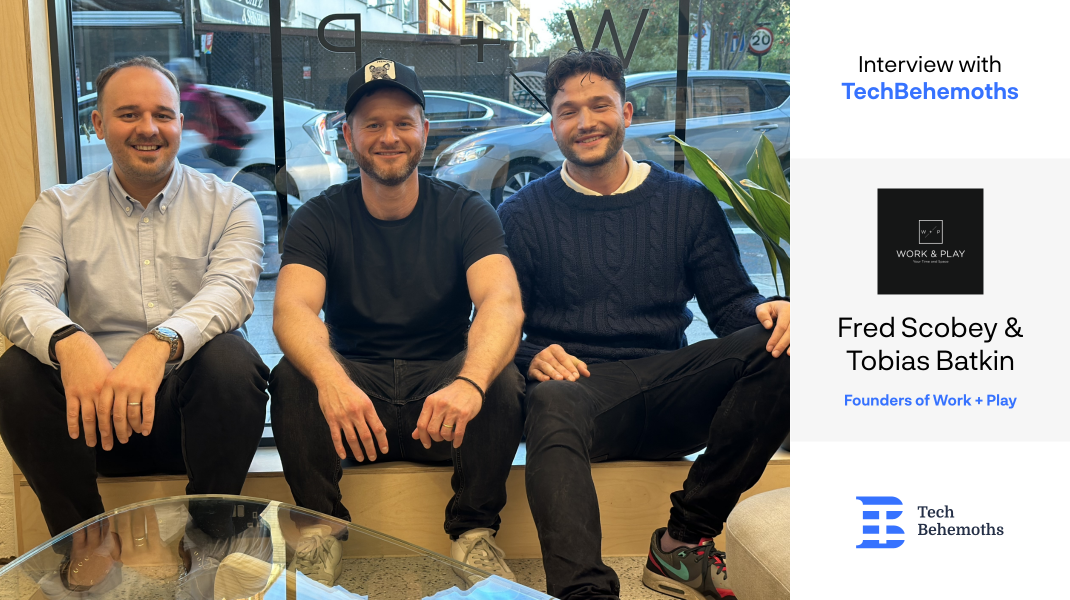
Although on TechBehemoths we speak more about technology, market research, business development and marketing trends, the real estate topic may have an important role in all this, without getting its deserved attention.
Today TechBehemoths’ founder Marcel Sobieski talked with Fred Scobey and Tobias Batkin, the founders of Work + Play London, who gladly accepted our interview invitation.
Hi Fred and Tobias! It is nice to meet you in your office today. To set the mood, could you please introduce yourself?
Tobias Batkin: Absolutely! I’m Tobias, Co-Founder of Work + Play, a next generation coworking space, along with my cousin Fred. Having built up a large commercial cleaning company, I wanted to bring our experience of exceptional workspaces to people’s high-streets.
Fred Scobey: And… I’m Fred. Ex management consultant fleeing the City in pursuit of developing local communities and economies. I’ve spent time working on theoretical business strategies and now I’m focussed on making it ’real’. Outside of W+P, exercise, travel, family, and relaxation. I’m one of those people that finds down time and enjoyment through intense exercise, so any and all of that.
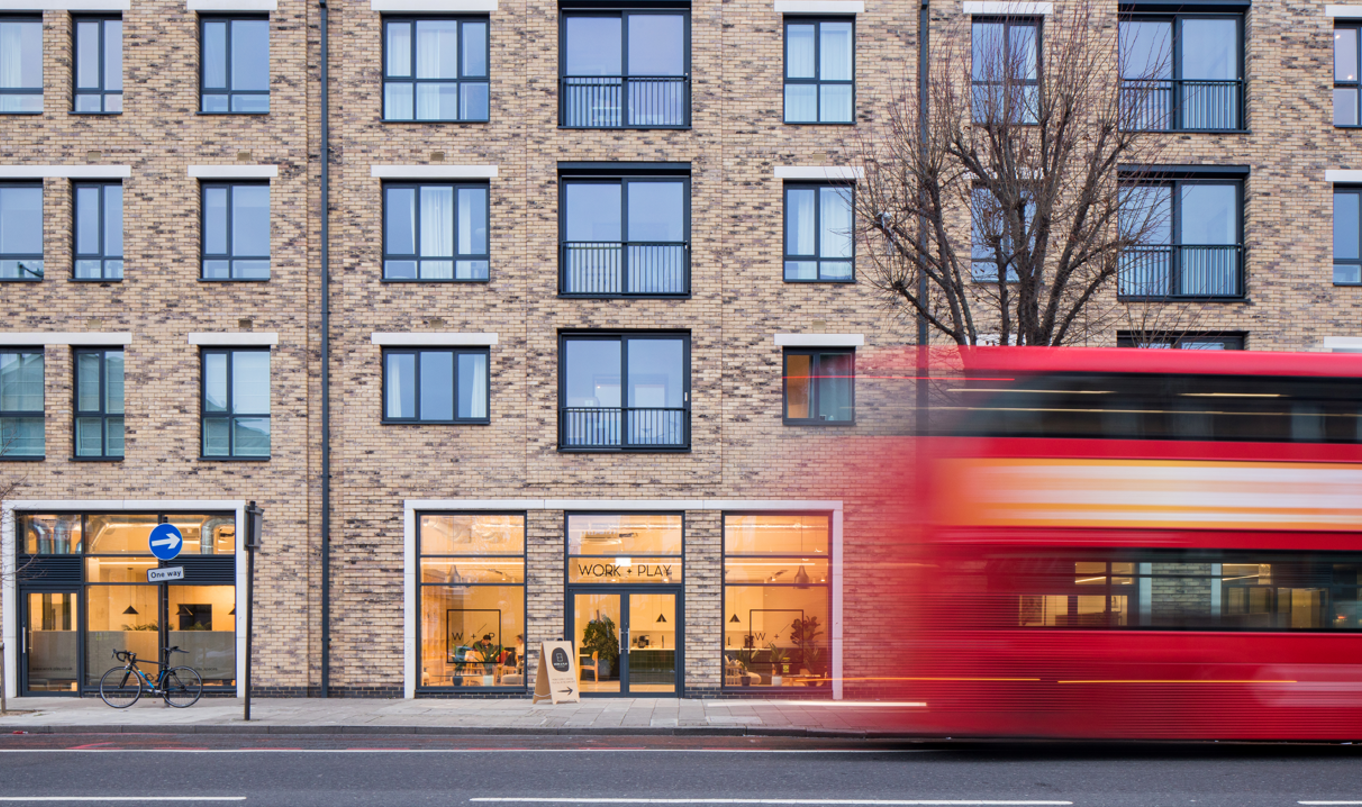
It took you a long way to come to this point. Do you consider yourselves now business people or business facilitators?
Tobias Batkin: To be honest, I’ve always felt like the term businessperson is a little generic. There’s something about “facilitator” that at least seems to capture one of major parts of running a business and that’s making “stuff” happen!
Fred Scobey: My views are similar to Tob’s on this and back to my point on making it “real”. We’re in the luxurious position at W+P where we have some fantastic members building innovative businesses. I believe our job is to facilitate the next generation start-ups locally through providing spaces and communities that foster our members’ growth and support where we can, their journeys more generally. This is about supporting organic conversations and the sharing of ideas in spaces where people feel happy, comfortable and can build the right mix for their own work + play balance.
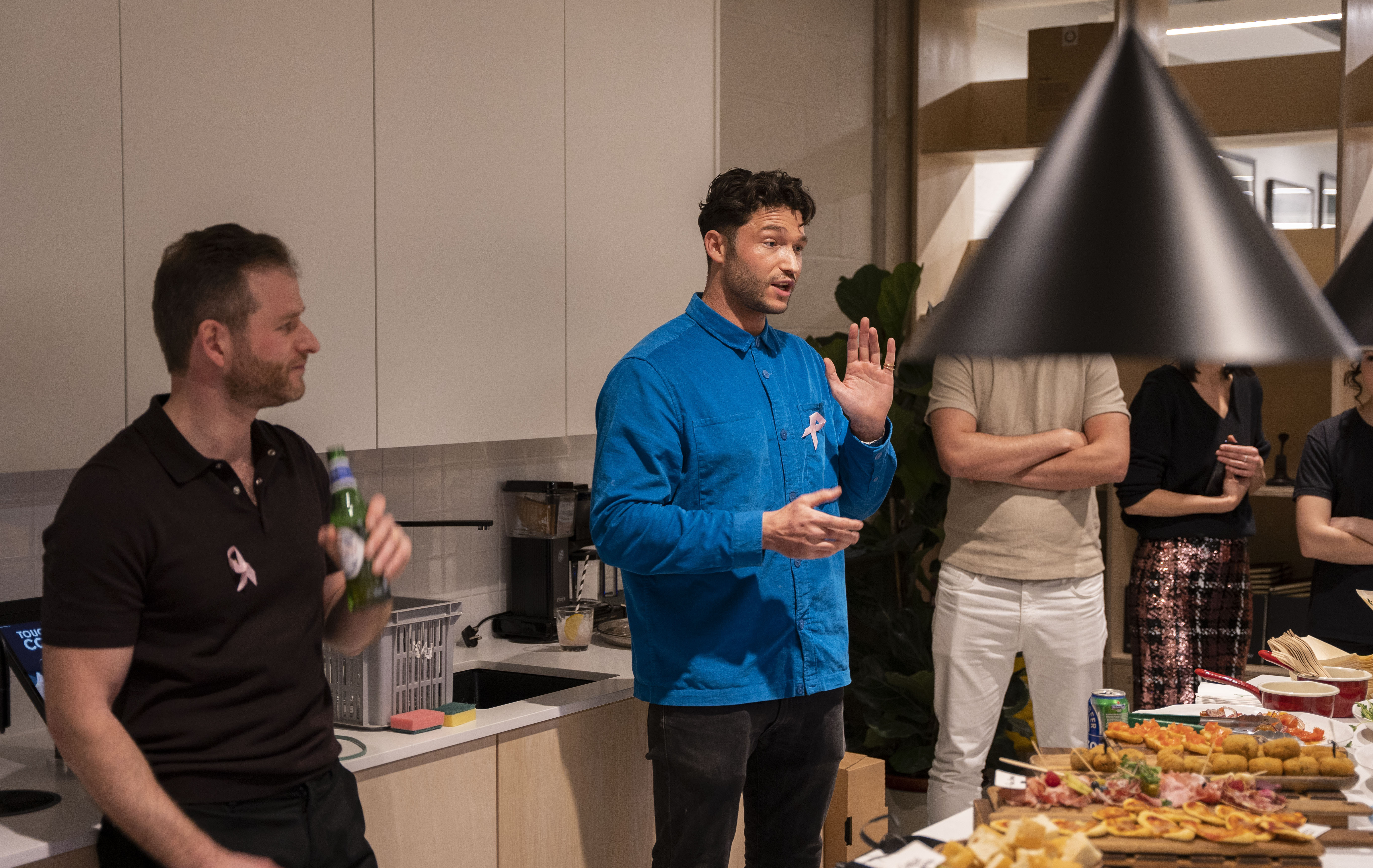
Do you think in our current times, is it possible to efficiently combine these two, without cutting edges? Aim for profitability and have a positive impact on other businesses as well.
Tobias Batkin: I’m going to give a very politician’s response here and say yes, it’s possible, so long as the two aren’t in conflict! For me though, I’d always take this back a step and say that I’d never want to be involved in a business that had to do harm by nature of what it does. Neither of us are motivated by money and we’re certainly not “at all costs” sorts of people. So for us, making sure we pursue “profit with a purpose” is pretty straightforward as we wouldn’t be involved with a business that did otherwise.
Fred Scobey: I agree. I would come at this from a slightly different angle. Work + Play is all about building social capital in high street locations and, understanding what locals need to support each other to foster business communities. You don’t need to be a not-for-profit to add real social value. We try to do this from the grass roots up. One example is supporting aspiring local entrepreneurs and existing small businesses to launch ventures with no risk. How? So we employ a partnership model with our yoga, Pilates, exercise, puppy yoga, acupuncture and massage instructors and practitioners. We work on a quid pro quo basis whereby our partners can use our spaces (for free) without the risks associated with space rental. The way I now think about it is to target the “S” in “ESG”. We are profit and socially focussed, for us this is the way we believe businesses should behave.
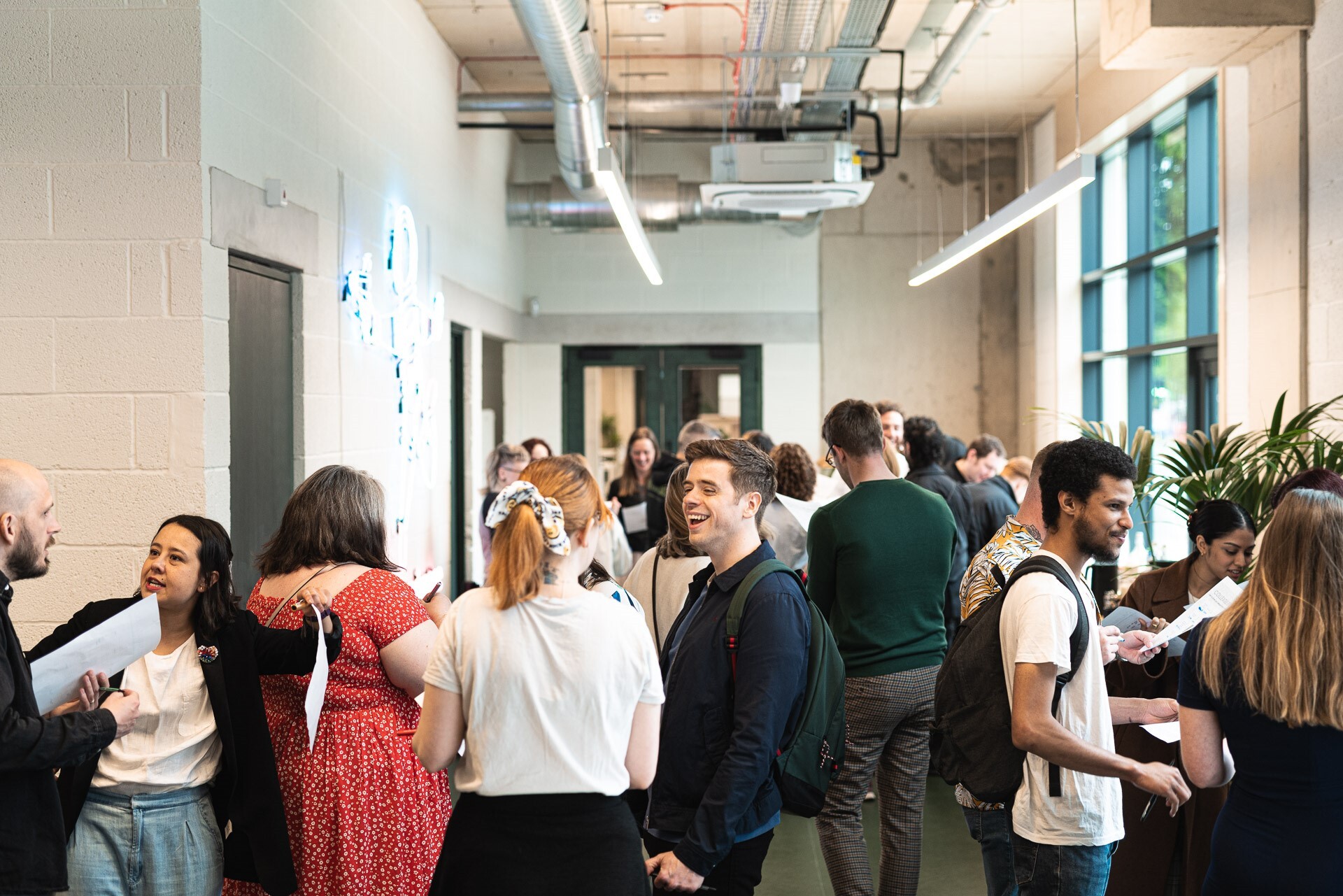
Work + Play. What is this? What is the philosophy behind it? Its real values?
Tobias Batkin: Work + Play is a new take on coworking. One where we provide an environment designed to facilitate work but also has wellness sewn into its DNA. For example, all our members gain access to a proper desk, with monitor and chair and as mentioned, we run free Yoga, Pilates and Strength and Conditioning classes. For individuals there’s an ability to gain access to a vibrant local community, on fully flexible terms. For businesses, it’s an opportunity to get an office that’s modelled on the best city centre offices but for a fraction of the cost. More than this though, we want to provide shared local spaces on the high street where people can work, can start their businesses, can meet people—a real community focal point. We’re both locals who spent much of our time as kids on the local high street and we feel that they can and should continue to be a big part of local community life.
Fred Scobey: I think that’s a strong summary. I can’t escape the consultant’s curse and try and summarise values into bullets. For me we exist because, No space truly combines work & play. We are also borne form the idea that People waste too much of their lives commuting and that our high streets are the shared spaces of every local community and ground zero for business.
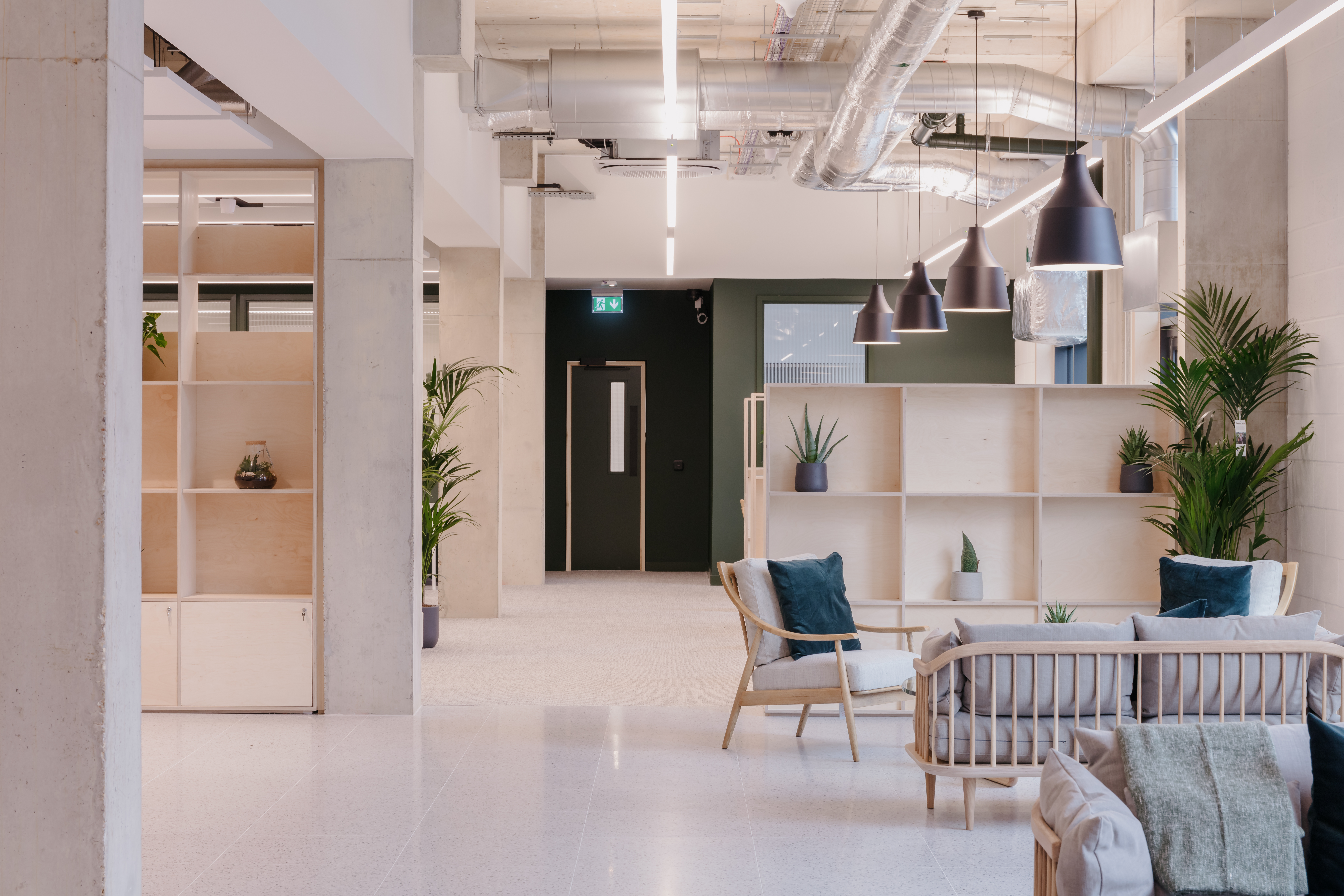
Our own previous startup ideas always came from our own needs, to solve a pain that we had. Then we shared and scaled it to the market. Does W+P have a similar path?
Tobias Batkin: Absolutely. I think many of the best business ideas come from people wanting to solve problems they have a personal interest in; it’s logical I think, to get involved in something you understand well, as opposed to a complete stab in the dark! At my commercial cleaning company, following covid, we could see the shift in attitudes towards the physical location of work—it was clear that we would never go back but equally that there was no infrastructure to support the new work from home crowd. From this, came the original idea to launch W+P.
Fred Scobey: We designed the space coming out the pandemic in one of the most densely populated residential markets in the world. Comfort in a home office for the vast majority is a pipe dream. We set our to provide this comfort for existing freelance and corporate clientele but also solve this problem for the emergent work from home community that was so heavily impacted in their remote working conditions by COVID.
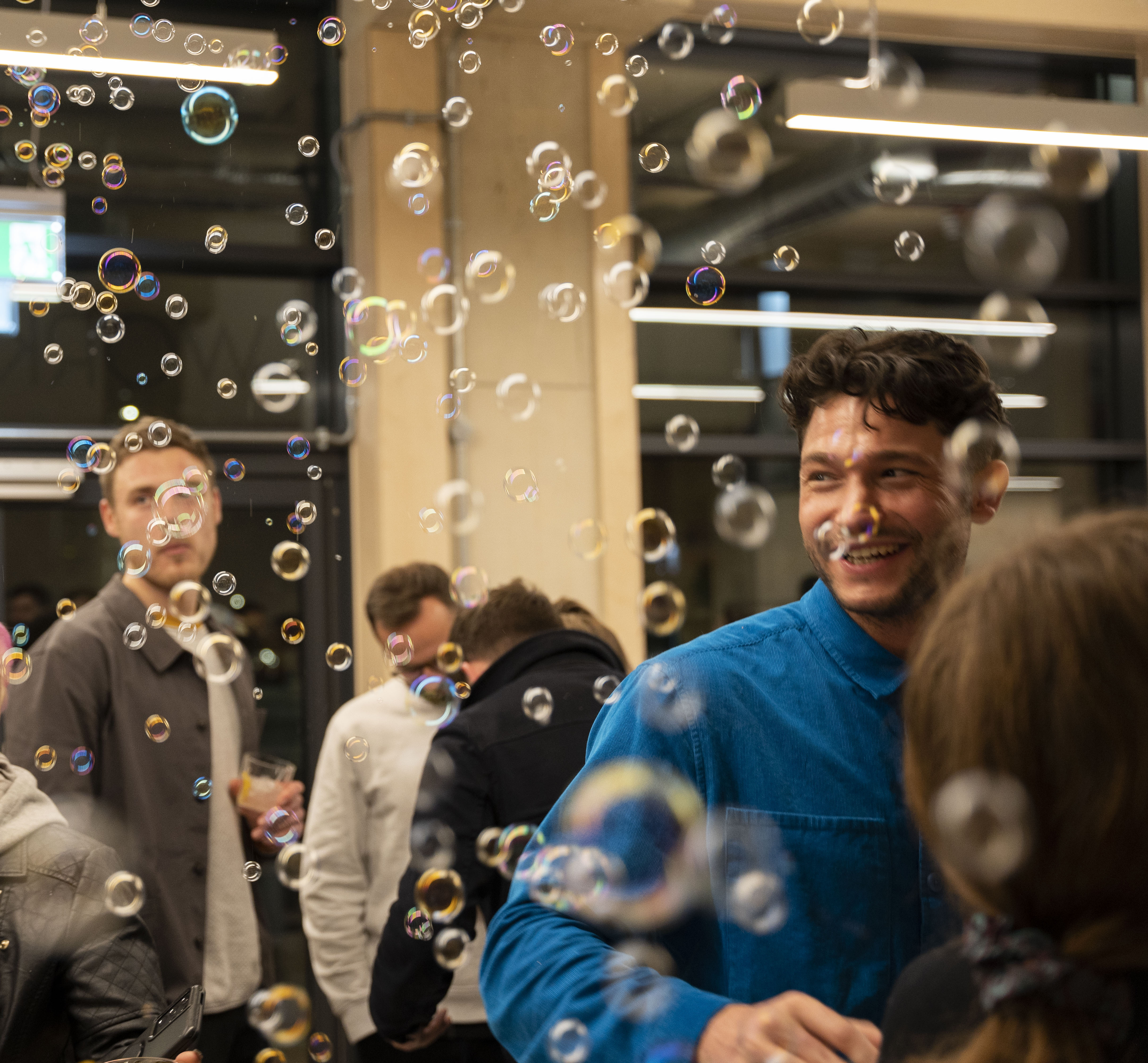
I did a bit of research on office spaces in London. Coming from Berlin, I see this market as different. No doubt you did your due diligence as well. What honestly sets you apart from your local competitors, which are so many?
Tobias Batkin: To be blunt, we’re the workspace that provides a genuine “Work”space. I find many other coworking spaces only want to upsell to private offices or fixed desks, which means they deliberately keep the coworking experience from being too comfortable and enjoyable. At Work + Play, we’re saying that the coworking market has now had its coming of age moment, so we can and should give people what they want; a local workspace they can genuinely work in, that provides flexible memberships.
Fred Scobey: I agree it’s a bit of dirty secret. we believe for local high-street model should create “coworking that works” where spaces have the UX that provides all of perks and comfort of the high-street on your doorstep.
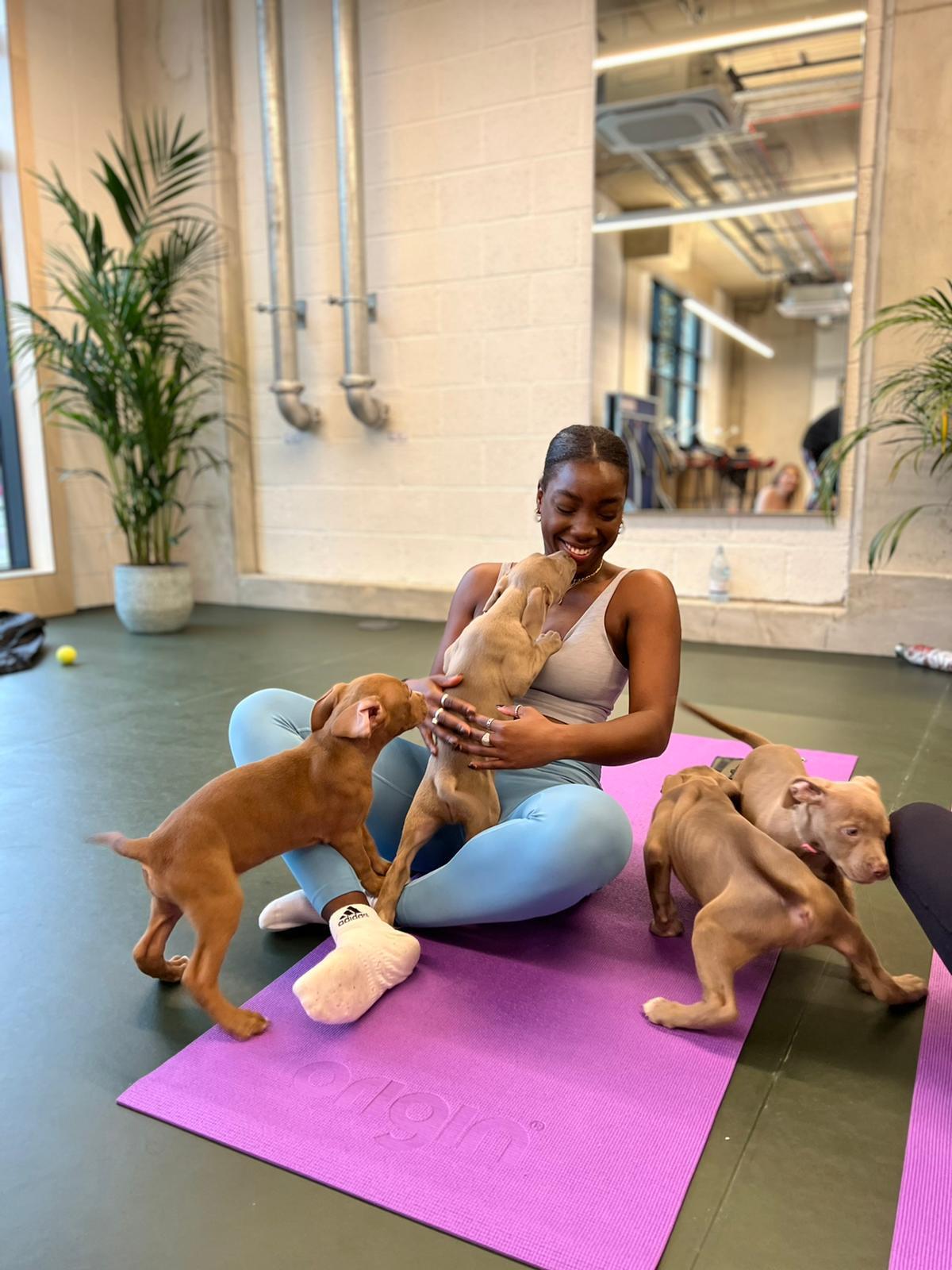
Besides the nice working environment you are offering, how do you contribute or facilitate your teams and W+P community?
Tobias Batkin: There are simply too many ways to list, so I’ll focus on the best bits! First and foremost, by having a local person front of house to foster and nurture the community elements (we just happen to have the most perfect person for that, our Raquel). The second is to ensure you design the space to allow for and encourage, those watercooler moments where people can meet and bond. This is one of the main reasons we invested in the best coffee machine money can buy—it produces a perfect flat white out of a tap! Finally, organising social events and regular good comms—make the newsletter engaging and have a laugh—if you’re having fun (and we have a lot of fun running W+P), then those around you will too.
Fred Scobey: We’re also working on a package of supporting materials and partnerships that help freelancers and start ups succeed. A good example is our recent affiliation with Hub Spot. Whilst there is no commercial benefit to W+P we’ve been able to secure up to 40% off all plans for W+P members. It’s still early days, but we intent to flesh this package of support out to meet the growing needs of our user base.
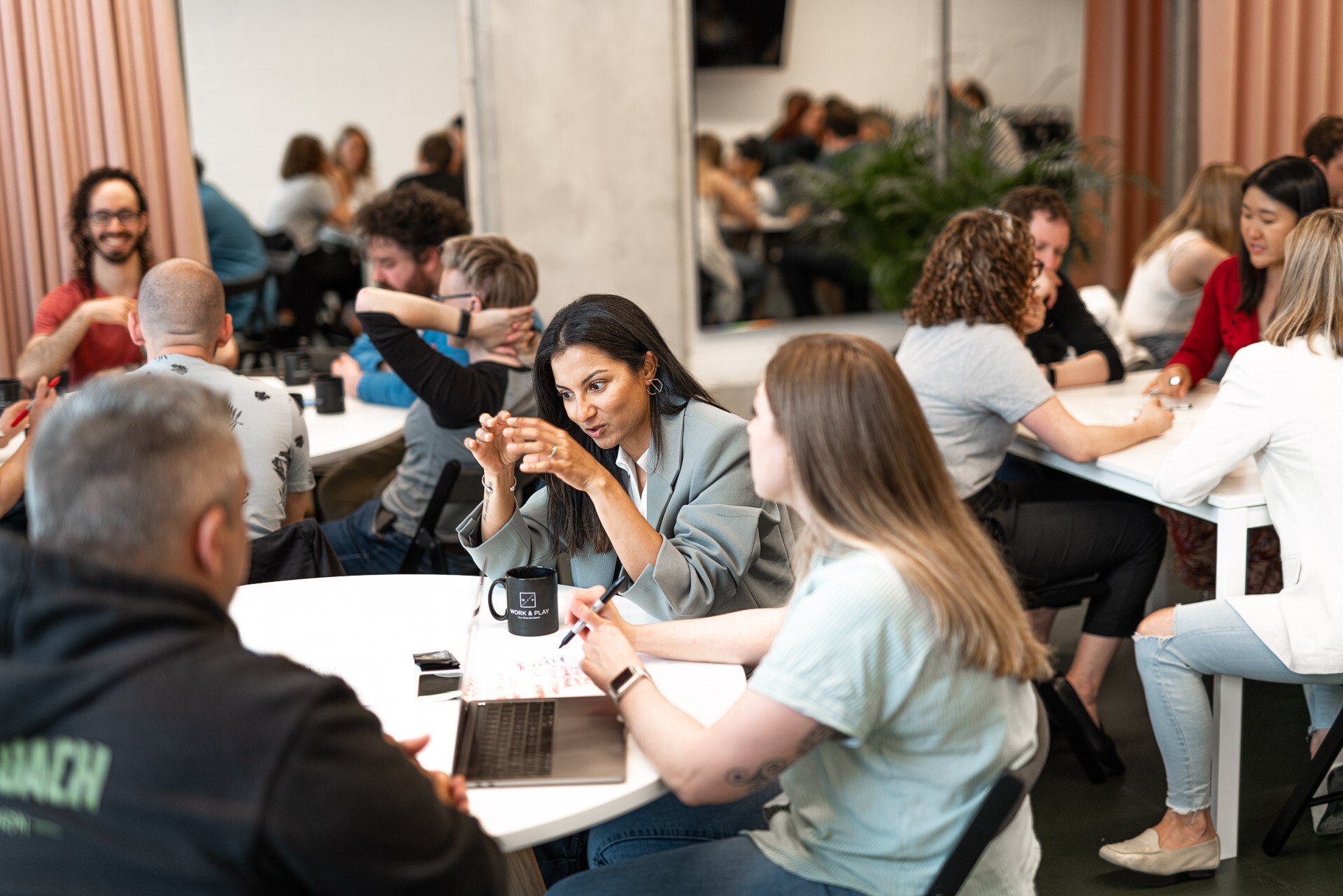
Speaking about this, what kind of guests/coworkers/ are ideal for Work + Play? For whom is it more specifically?
Tobias Batkin: As with all businesses, there are certain types of customer that we attract more than others but the big thing for us is that everyone is local. We have so many types of businesses and people that it wouldn’t be fair to focus on some over others! The fact is, we have many members who are seasoned co-workers and many others who have only now, post covid decided to give it a go. That’s the point! Coworking should be for everyone, whatever your job/sector.
Fred Scobey: We have recently acquired a number of SME clients that are joining Work + Play to cut costs whilst improving employee experiences in the office. We’re excited about these guys as they’re companies that in years gone by, would have had their own offices, but have integrated seamlessly with the community, which provides a great springboard for those in the early stages of their entrepreneurial journeys.
It might be a little too early, but do you have some success stories already born at W+P?
Tobias Batkin: We’ve only been open for 9 months so it’s a little early for anything too spectacular. What I would say is that we have some incredible businesses based here, that I know we’ll all be reading about for years to come.
Fred Batkin: One that does spring to mind is Richard Remmington (Remi) / SalesRook. They’re a CRM / whatsapp integration platform that have smashed their MMR targets and are on track for a multi-million valuation at the next round. On top of this, Remi has been such a positive and welcoming force in the community, supporting others with business challenges and us personally with referrals.
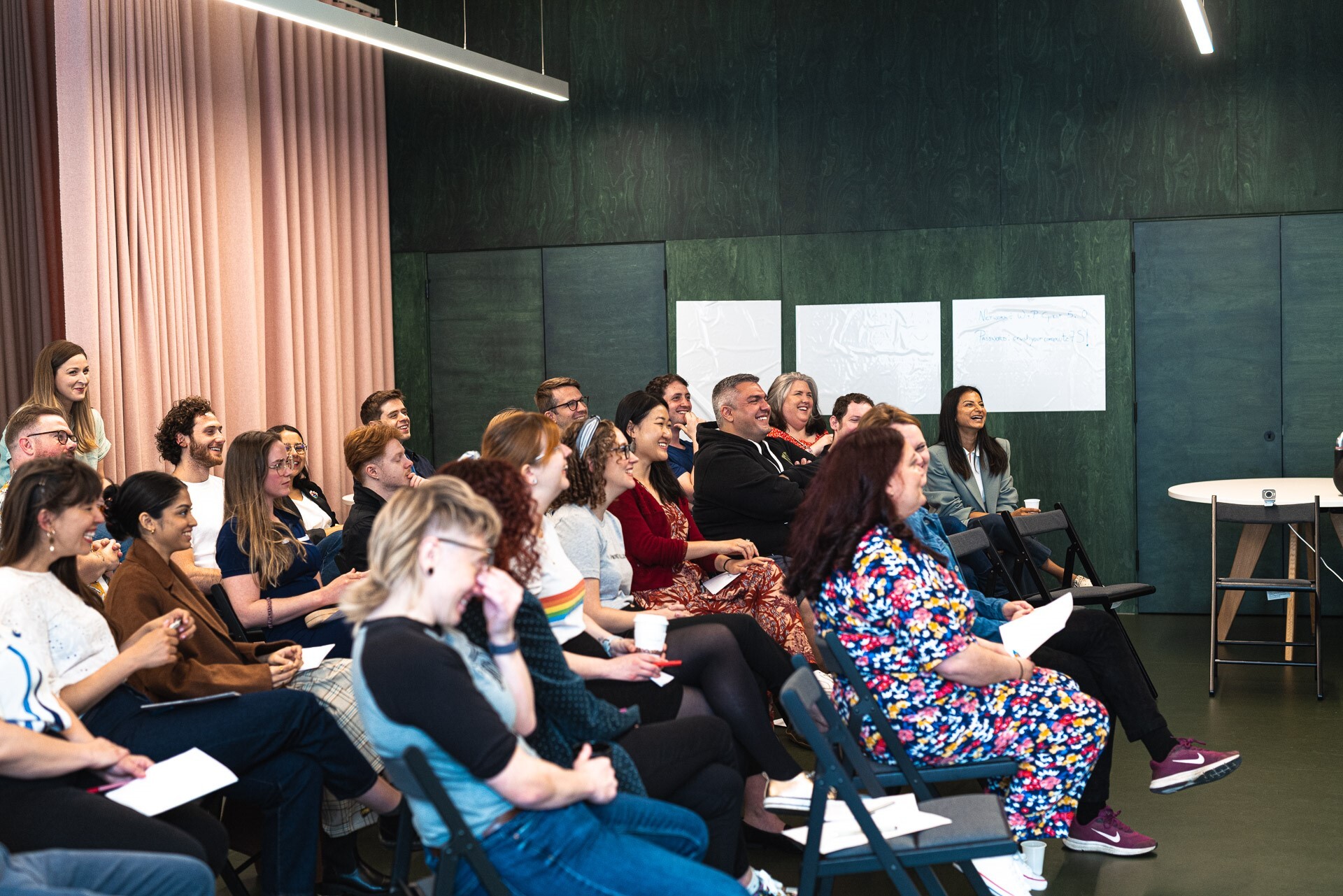
What is your perspective on WeWork's business, culture and influence, before Adam Neumann stepped down in 2019?
Tobias Batkin: I have mixed feelings about WeWork. Putting aside my misgivings about its business model, it brought coworking to the attention of people and businesses who would never have otherwise considered it. This is a trend we’re very much looking to capitalise on at Work + Play.
Fred Scobey: The other side is that its failure, might give people the wrong impression of the industry as a whole. Largely they shone a light on coworking and educated a broad range of people and businesses to the opportunities in the market, so that’s only a good thing. As for the other side, potentially a conversation best left for the pub.
He launches Flow, a new real estate business, that touches both living spaces and crypto. What do you think about this? Is this a new trend or rather an opportunity, or worse? Are you considering expanding your services beyond working spaces?
Tobias Batkin: Haha, well for now we’re happy with being part of the new working landscape and gladly leave residential to others! I think in the same way that Neumann recognised the opportunities in the flexible workspace market, he’s now seeing something similar with residential. For commercial, the leases that underpinned the office market weren’t reflective of an ever-increasing section of the economy; businesses that didn’t want to or couldn’t sign long leases. In residential, the issue, at least in major cities like London and New York, is that the rental stock is poor and buying is hard/expensive. I think this is the opportunity that Adam sees. As with WeWork though, the proof’s in the pudding (as my mum says): execution is everything.
Fred Scobey: As Tobias says, it is early days… However we’re seeing green shoots in commercial real estate models and agreements that support a core offering of coworking. At this stage, it’s more a watch this space, but we will have more to report soon.
It is hard to predict, but what are your realistic plans for the future? Say next 2-4 years.
Tobias Batkin: Realistically, in the next 5 years, we want to ensure we’ve got good coverage in Zone 2. We have no plans to go further into London. We expect to have 10 premises within 5 years. Ideally, we’d be opening in places like Clapham, Peckham, West Hampstead; areas with strong concentrations of Work from Homers, as well as a sizeable small business community.
Fred Scobey: Looking further afield, there are also opportunities in other UK markets where there is growing demand for coworking. We’re keeping a close eye on Manchester, Bristol, Cardiff and Edinburgh.
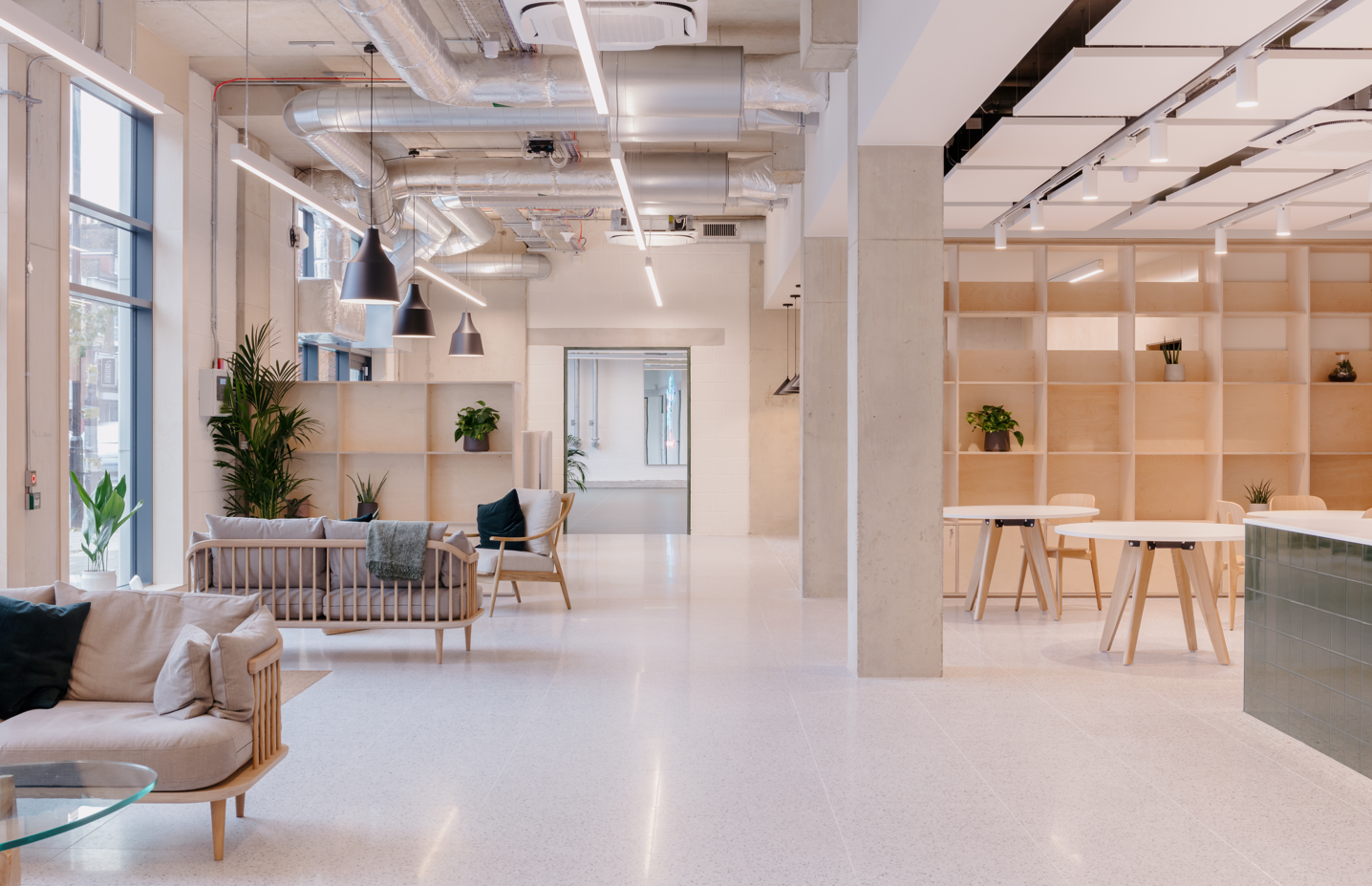
What could be a disruptive move, a pivot if you wish, that could set you apart from your competitors in the next few years?
Tobias Batkin: The most disruptive move would simply be our success. We’ve taken an existing business model, that relies on upselling and overselling and said instead that we will offer people what they want, at the price they’re prepared to pay. Miles cheaper than private offices and fixed desks but also miles better too! If that’s not disruptive then I don’t know what is!
Fred Scobey: I think we can support growing trends in virtual reality and social broadcasting. Bringing this to life we’re talking twitch rooms, oculus and podcasting studios.
I have a lot more questions, but for the sake of time and intrigue, I will ask you just three more. If you would meet Jeff Bezos next week, in what circumstances would you want that to happen and most importantly, what would you ask him, or talk about?
Tobias Batkin: Haha, well it’s unlikely I’ll meet him as I haven’t been to many night clubs recently or been riding topless on a horse! However, should our paths collide then I’d hope it’s because he’s seen our amazing space (and not seen my comment above) and decided to invest!
Fred Scobey: Oh, and lastly, “where did you buy that gilet”
To continue this topic, if having such an opportunity, what one person would you want to meet (dead or alive)? And what would you talk about?
Tobias Batkin: Wow, so many options. To be honest though, there’s only one for me: Jimi Hendrix. I’m a guitarist, he’s the reason I play guitar, he’s always been an inspiration and frankly to meet him would be beyond amazing!
Fred Scobey: For me it would be Elon Musk, cliché I know…. But it would be more to inspire some more DOGECOIN related tweets and sit back for the price action.
And this is more complex, but I know you have the experience and vision to answer - how do you see humanity and our lives in 2030? This is just 8 years from now. Both from a social, economic, and cultural way.
Tobias Batkin: Well, I see 2030 as being the moment that the transitions we’re seeing and experiencing now, become or have become fully established parts of our lives. I think there will be a renewed focus on local—we’re seeing this from an environmental perspective, we’re now seeing it from a social one too. It seems natural therefore, that the economics of local will be fully fledged by that time. I think the post war period was defined by globalisation but the next 50 years will be defined by something quite different. We’re seeing it in energy security, we’re seeing the vulnerabilities of a fully globalised world and I do think there will therefore be a continued appetite to focus on what’s closest, which will redefine much of how we live.
Fred Scobey: For me in a sentence: the jury is out on whether we will all be living behind VR lenses (I hope not), what I am hopeful for is that the rejuvenation of local communities creates human value and opportunity. I see the 15 minute city https://www.15minutecity.com/ becoming a reality and with ever expanding globalisation will come a need to join human connectivity with hyper localisation.
Fred, Tobias, the talk is very interesting and time passes quickly when we are having fun, but we have to conclude this interview for now. What advice would you give to our readers? Or what good piece of advice did you get at the right time in the past?
Tobias Batkin: “Go where your money buys the best”—this is true for personal purchases as much as for businesses. When choosing partners, suppliers or just buying something—make sure you’re valued by the other side.
Fred Scobey: Wherever you work, make sure you’re getting real human value. Whilst the pendulum continues to swing and the new normal of WFH / Office / Nomad dust begins to settle, use happiness, connectedness, and community in your decision criteria and you’re unlikely to go wrong.
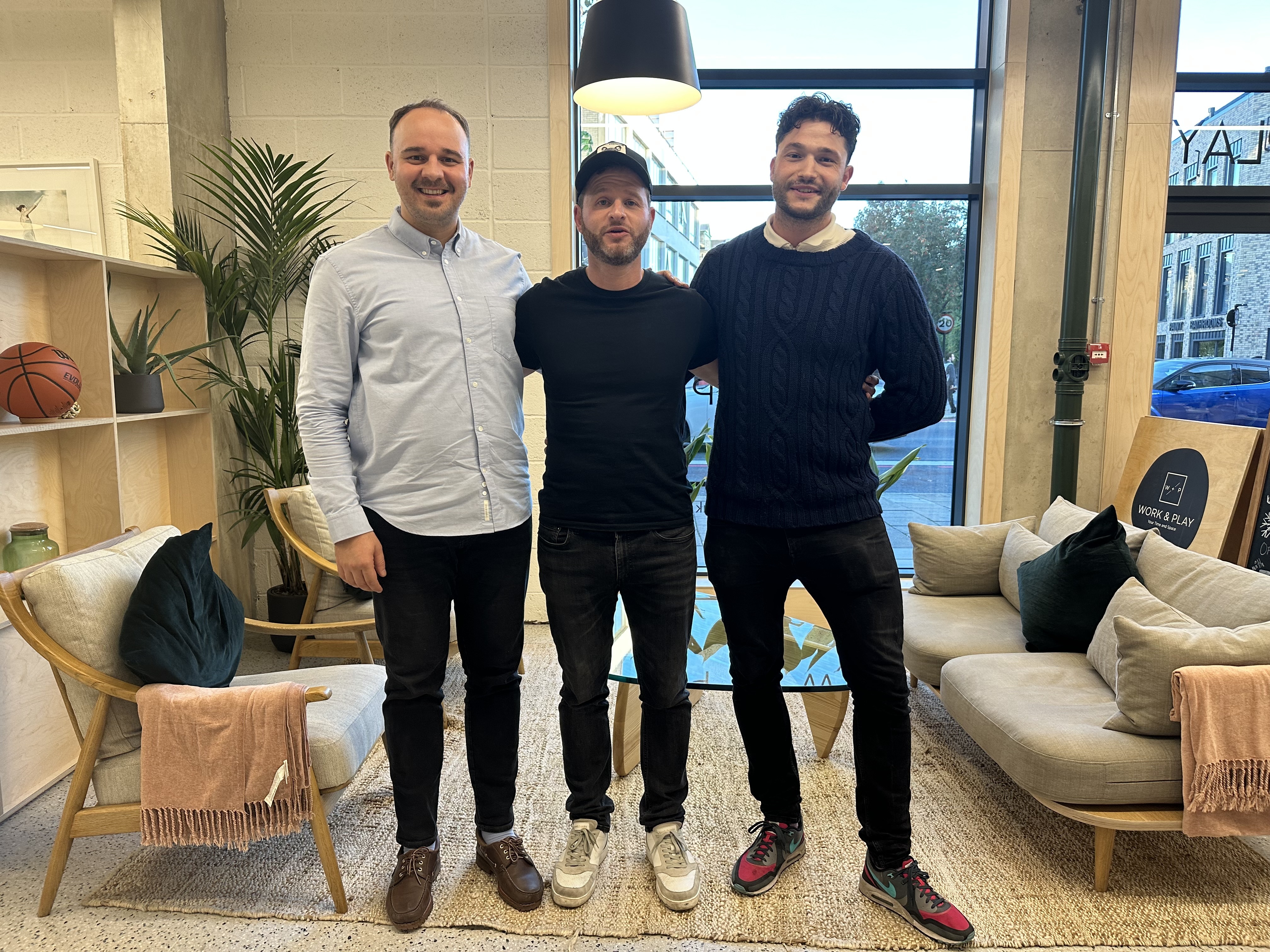
I hope our today guests inspired you a little and made you consider some new topics and opportunities. If you find that interesting as well, reach out to them at any time on LinkedIn, or, simply give them a visit in their Work + Play office in Finsbury Park London.
Fred Scobey on LinkedIn
Until the next time!